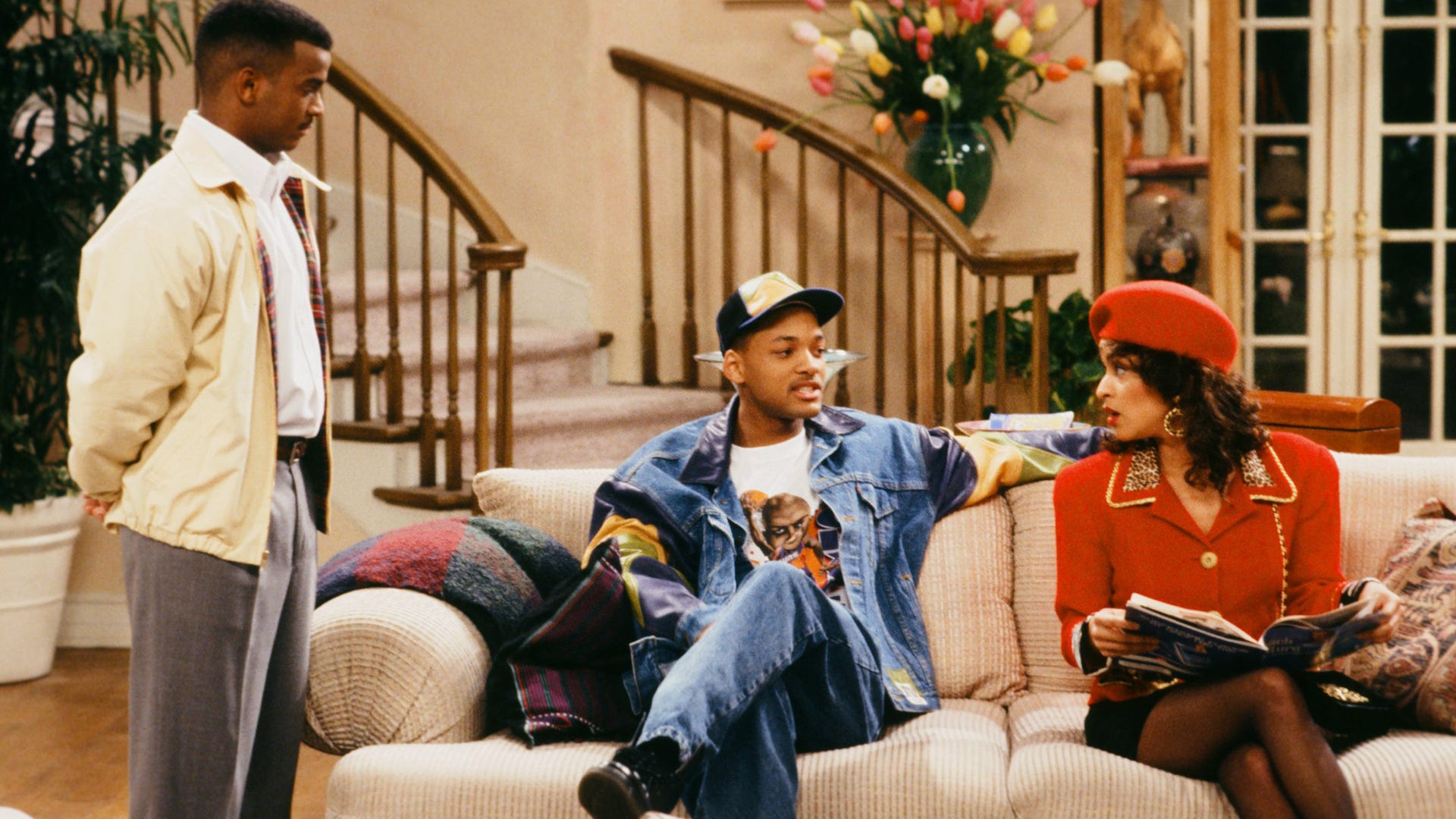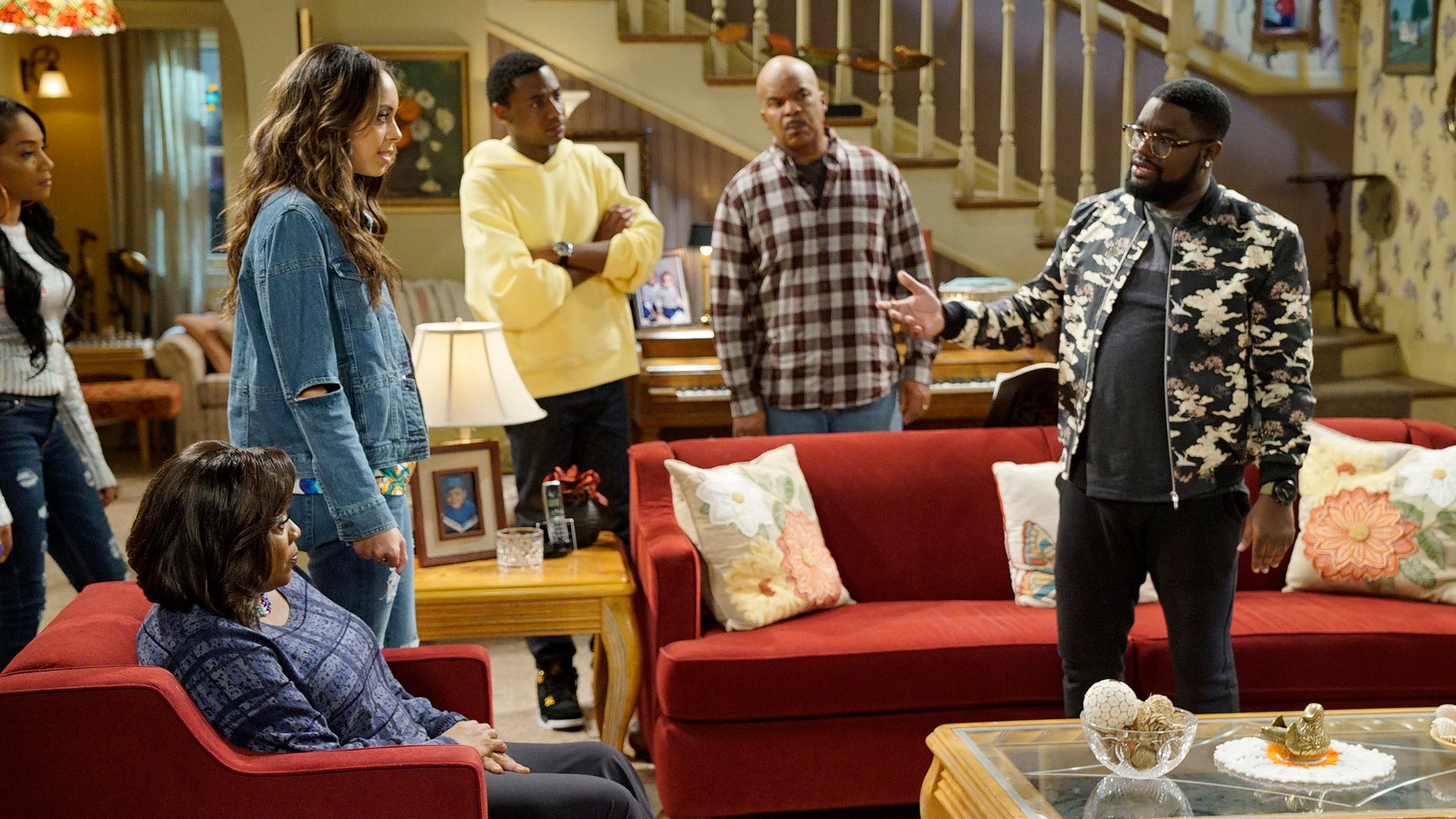Join or Sign In
Sign in to customize your TV listings
By joining TV Guide, you agree to our Terms of Use and acknowledge the data practices in our Privacy Policy.
11 Shows to Help You Get Over Never Seeing The Cosby Show Again
Hope to cope with losing a classic
After a jury found Bill Cosby officially guilty of sexual assault, Bounce, a mid-sized network catering to African-Americans, became what might've been the last network to yank The Cosby Show reruns off the air. Most already had of course, but the guilty verdict removed any lingering doubt of his guilt and cemented The Cosby Show as nearly unwatchable.. A lot of people are sad about this, but they shouldn't be. Because here's the thing: nobody needs The Cosby Show anymore.
For starters, if just one of the 60 people Bill Cosby allegedly assaulted has to turn on the TV and see the person who drugged and assaulted her and then threatened her with silence, the price of airing one Cosby Show rerun is too high. And anyway, The Cosby Show did its job. It's free to leave, for good.
Anyone alive during the 1984-85 season The Cosby Show debuted knows how Cliff (Cosby), Claire (Phylicia Rashad), Sondra (Sabrina Le Beauf), Denise (Lisa Bonet), Theo (Malcolm-Jamal Warner,) Vanessa (Tempestt Bledsoe) and Rudy (Keshia Knight Pulliam) blazed a trail in depicting cultured, affluent African-Americans on TV; anyone black who grew up on it knows how it looked like a mirror, a validation, an aspirational blueprint and/or a source of pride. But in the 26 years since its final season, dozens of other sitcoms about black families sprung up, each new one more varied than the other. Are there enough representations of African-American life on TV? No. Did any other show permanently alter the TV landscape like Cosby? Nope, but few could, because, like Will & Grace or Netflix's One Day at a Time, The Cosby Show arrived at the right moment to be the exact thing the culture needed at the moment, and those lightning in a bottle shows come only so often.
Which Shows Are in Danger of Cancellation?

1. Black-ish (2014-present) ABC
Obviously. Going into its fifth season, ABC's Tuesday night comedy wears its roots on its collar, right down to the five kids and the doctor in the house: Dre's wife Rainbow. Creator Kenya Barris has said The Cosby Show was about a family that happened to be black, but black-ish is different: a family who is "absolutely black," a distinction made prominent in its issue-oriented episodes that tackle touchy topics including police brutality and slavery. Compared to the Huxtables, Bo and Dre are thoroughly modern parents with new-school values; Claire Huxtable would've never let one of her daughters get sassy with her, as Bo frequently does with Diane.
2. My Wife and Kids (2001-2005), ABC
As family sitcoms go,My Wife and Kidstoed a line between naughty and primetime cheesiness; the very nature of having the cool and occasionally crass Damon Wayans alongside former Martin star Tisha Campbell-Martin was a nod and a wink warning viewers this would veer from the sanitized comedy of The Cosby Show. Sex - stories about sex and jokes about sex -- made it into many episodes, and Michael (Wayans) didn't hold back when it came time to discipling his kids Jr. (George O. Gore II), Kady (Parker McKenna Posey) and Claire (Jennifer Freeman) with hilariously harsh punishments.

The Fresh Prince of Bel-Air
NBC/Getty Images3. The Fresh Prince of Bel-Air (1990-1996) NBC
Hard to believe, in retrospect, that The Cosby Show and The Fresh Prince were on the same network at the same time (Cosby went off the air in 1992) since they're so similar (rich black people in nice houses!) and yet so wildly different. Playing himself, Will Smith escaped his never-seen rough Philly neighborhood to crash with his uncle -- an acknowledgment of poverty and urban blight The Cosby Show avoided at all costs -- and live out a hip-hop rags to riches fantasy. If The Cosby Show defined the 80s then Fresh Prince is quintessential 90s, particularly since Smith was still a pop star at the time and Hilary (Karyn Parsons) and Will's outfits were peak 90s goals. From Carlton Banks' iconic bad dancing to the cult worship of the original Aunt Viv, the series leaves a loving legacy behind. Nobody screw this up, please.
These Are the Best Shows on Netflix Right Now
4.vFamily Matters (1989 - 1998) ABC, CBS
Like The Cosby Show, Family Matters had its fair share of critics for presenting a sanitized, fairy tale family life -- this one with uber-nerd Steve Urkel (Jaleel White) performing as its cartoonishly impish man-child. Goofy and sentimental as it was, Family Matters worked as a boilerplate half-hour comedy about a cop Carl Winslow (Reginald Veljohnson) and his family.

Everybody Hates Chris
CBS Photo Archive, CBS via Getty Images5. Everybody Hates Chris (2005-2009) UPN and The CW
Everybody Hates Chriswas in some ways a rebuttal of the Huxtables bourgeois upbringing. Like The Cosby Show, Chris took place in Brooklyn in the 80s, albeit on the other side of town: in Bed-Stuy where crack and gun violence were far more common to see than people going one of the historically black colleges Heathcliff was always shouting out. The liberally fictionalized account of Chris Rock's childhood made working class blues central in its story -- almost always in service of profound insights about society, family and race that were always funny. And Tichina Arnold is a treasure.
6. The Carmichael Show (2015-2017) NBC
It didn't last long, but The Carmichael Show picked up the Cosby mantle with a provocative and existential comedy in a working-class Southern sitcom wrapper. Whereas black-ish tends to translate various points of view about issues unique to black Americans, The Carmichael Show questioned the points of view altogether, with lead Jerrod (Jerrod Carmichael) poking holes in sacrosanct ideas (that black people don't do assisted suicide, for example) or exploring generational clashes --- like in its famous N-word episode that aired the slur six times during primetime. Heathcliff Huxtable's head would've exploded.

The Carmichael Show
NBC/Getty Images7. The Parkers(1999 - 2004) UPN
Among the multitudes of "urban" sitcoms to launch in the early aughts,The Parkersstood out as unapologetically unrefined and, subsequently, hilarious. A spin off of Moesha, The Parkers starred Mo'Nique as single mom Nikki -- a loud, often rough-around-the edges woman always extra thirsty for the attention of a man who didn't want her, especially the skittish Professor Oglevee (Dorien Wilson). It was raw and real, bucking the Cosby Show's prudishness to show a struggling single mom in college alongside her daughter Kim (Countess Vaughn).

grown-ish
Kelsey McNeal/Freeform8. Grown-ish(2018-present) Freeform
The Cosby Show spawned A Different World when Denise (Lisa Bonet) went off to fictional HBCU Hillman; black-ish sent Zoey (Yara Shahidi) to the UCLA-facsimile Cal U where she dabbled in drugs, experimented with sex and occasionally drove her parents nuts from afar. Just like its spiritual sister, grown-ish puts a magnifying glass on the issues kids of the era face on campus, making it multi-culti and queer-inclusive refresh of a classic we didn't know we needed.
9. Sister, Sister (1994-1999) ABC, the WB
Sure, the premise stretched the bounds of believability -- long lost identical twin teen sisters Tia (Tia Mowry) and Tamera (Tamera Mowry) find each other and then move in together thanks to their very adventurous parents Ray (Tim Reid) and Lisa (Jackée Harry) -- but, whatever. Sister, Sister was a sweet female-led tween fantasy that, like Cosby Show, showed its kids as all-American youngsters that were just as determined, naïve and pop-culture obsessed as everyone else.

Hangin' with Mr. Cooper
ABC/Getty Images10. Hanging With Mr. Cooper (1992-1997) ABC
Mr. Cooper's (Mark Curry) family wasn't traditional -- a bit like a Three's Company with kids. One of those kids, of course, was Nicole -- Raven-Symoné in her first TV role after playing Olivia on The Cosby Show. Hanging was hardly earth-shattering stuff -- there's adults crushing on each other but too afraid to say it, and predictable Mars vs. Venus rivalries -- but setting the show in Oakland and with Cooper as a basketball coach meant showing a black man in a position of leadership and mentorship with kids in his community.
11. Moesha (1996-2001) UPN
Capitalizing on lead star Brandy's rising fame and wholesomeness, Moesha exaggerated the cultural pride that was the quiet subtext of The Cosby Show with an Afrocentric vibrancy. Set in Los Angeles' mostly black Leimert Park neighborhood, Moesha was pleasant but unafraid to dive in the thick of uncomfortable topics including teen pregnancy and drugs. Moesha ran far away from the "respectable black family" template, even having Moesha relocate from her house after learning that her cousin Dorian (Brandy's brother Ray J) was actually her brother: the oops baby her dad Frank (William Allen Young) whose identity he kept on the DL.
